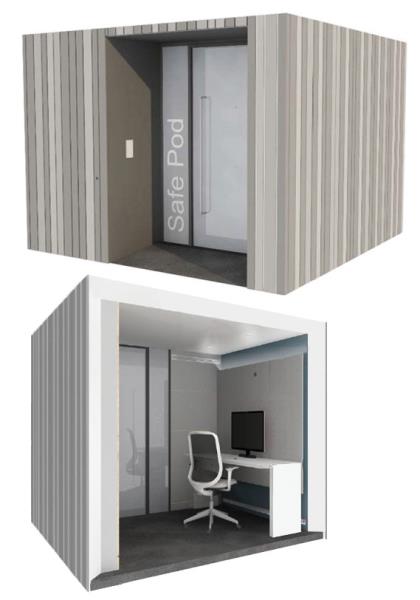29 November 2017

The pods provide researchers with dedicated and secure space to remotely access project data. The units are also said to be compact enough for deployments where space is limited.
The University of St Andrews has been granted £1.5m from the Economic and Social Research Council to create and manage a new Micro Safe Settings Network (MSSN). This aims to support, strengthen and widen remote access to sensitive information held by data centres across the country.
The university says research access to sensitive data can only typically take place in tightly controlled safe settings where the privacy of the data subjects can be assured. But it points out that these type of research settings can be expensive to build and maintain, and so only exist in a few places across the UK.
According to St. Andrews, the establishment of the MSSN will help overcome these issues via a standardised network of micro safe settings or “SafePods”. Designed and developed at the university, its claimed these provide researchers with dedicated space to remotely access project data. They are said to feature the security and safety features that exist in a traditional safe setting, and are also compact enough in size for placement into organisations where space may be at a premium.
The MSSN will work closely with the Administrative Data Research Network to provide researchers with remote access to their data. The UK Data Service has agreed in principle that the majority of its Secure Lab data holdings will be remotely available to researchers through a SafePod. The MSSN will also engage with other key data centres and government departments across the country to offer and support remote access to their sensitive data.
MSSN director Professor Chris Dibben says: “The Micro Safe Settings Network will enable safe research from many more places across the UK. This will enable a far greater amount of public benefit research to be carried out, particularly within research institutions historically disadvantaged by being distant from national safe data settings.”










